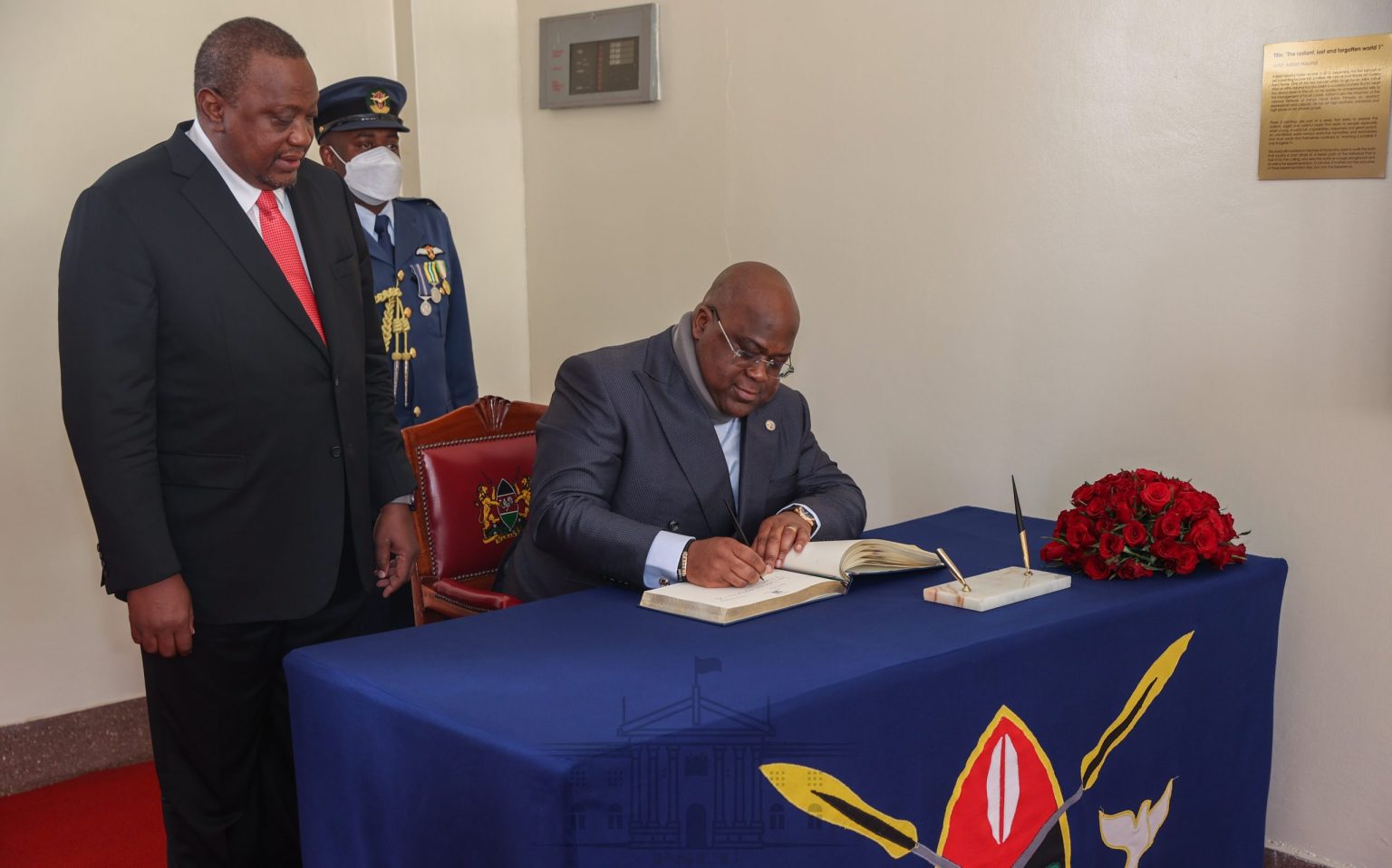- The Democratic Republic of Congo has restated its desire to form a natural resources and mining organ of the East African Community
- DRC seeks to create an institution specifically focused on energy, natural resources and mining
- The East African nation also has hydropower potential, immense biodiversity, substantial agricultural land and the second-largest rainforest globally
The Democratic Republic of Congo has restated its desire to form a natural resources and mining organ of the East African Community.
Speaking on April 8, 2022, when the EAC Heads of State signed the Treaty of Accession of DRC to the EAC, President Felix Tshisekedi reiterated DRC’s desire to create an institution specifically focused on energy, natural resources, and mining. The President also proposed that the institution’s headquarters be in Kinshasa.
Tshisekedi pointed out that the institution would capitalize on research, optimization and management of natural resources within the East African region. He further noted that the agency would play a crucial role in implementing projects in Africa’s Agenda 2025 while also helping mitigate the effects of climate change.
Read: DRC boosts EAC’s population to 0.3 billion people
DRC boasts of many natural resources. The country is the world leader in cobalt production and the fourth largest copper producer globally. The East African nation also has hydropower potential, immense biodiversity, substantial agricultural land, and the second-largest rainforest globally. Additionally, DRC has Lithium deposits estimated at over 130 million tonnes in the Southeast.
With this suggestion by President Tshisekedi, DRC seems to kick the ball rolling and invoke Chapter 19 of the EAC Treaty on cooperation in natural resources and environmental management. Article 114 of the EAC Treaty states that for cooperation in environment and natural resources management, member states resolve to take concerted efforts to cooperate in the sustainable utilization of natural resources for mutual benefit.
“However, forest loss rates have accelerated in recent years, and in 2020, the DRC lost 1.31 million ha of natural forest, equivalent to 854 million tonnes of CO₂ of emissions. This has had deleterious environmental impacts (including rainfall patterns, biodiversity, and climate change) and is threatening the livelihoods of the 35 million people who depend on forest resources,” World Bank says in the report.
World Bank’s collaborations in energy sector investments have been intended to rehabilitate transmission networks and hydropower plants, raise Inga’s electricity production by 632 MW and augment power supply to mines, but with limited investment in the distribution network segment. However, the civil war caused insecurity, seeing DRC struggle to maximize its resources, particularly mines.
Read: DRC boosts EAC’s population to 0.3 billion people
During DRC’s admission to the EAC on March 29 2022, President Tshisekedi observed that the nation desires to see the creation of a new body in the EAC to focus solely on focused on mining and natural resources and energy with that body headquartered in Kinshasa. DRC was admitted to the EAC at the virtual 19th Summit of the Community’s Heads of State after recommendation by the Council of Ministers.
The Summit chairman and Kenya’s President, Uhuru Kenyatta, said DRC had met all the set criteria for admission as provided for in the treaty for establishing the EAC. “We have concluded the regional processes for admitting new members as provided for in our rules of procedure. Admitting DRC into EAC is historic for our community and the African continent.
“It demonstrates the agility of the community to expand beyond its socio-cultural boundaries to new people and trade-centred partnerships and collaboration, thus increasing trade and investment opportunities for the citizens,” President Kenyatta said at the time.
The next step was signing the Treaty of Accession, which had to happen before April 14. DRC now must beat the September 29, 2022, deadline to undertake its internal and constitutional processes to ratify the treaty and present to the secretary-general of the community the instruments of ratification. Subsequently, DRC will join all the activities and programmes in line with EAC’s four regional integration pillars.
The admission of DRC into the East African Community will create a fundamental value proposition, colossal market and opportunities for the region. The DRC will play a key role in linking the region through port usage at the Indian Ocean and the Atlantic Ocean and North to South, hence expanding the region’s economic potential. DRC will also offer an opportune moment for East African citizens to utilize visa tourism and explore the famous forests of Congo under the free trade and movement policy.
The DRC applied to join the EAC in June 2019, and if approved, it would give the regional trade bloc its first port on the African west coast and boost regional trade. Its admission would make EAC one of the most populous regions while creating a vast market to boost growth as the regional trade industry and services depend on large markets.
Read: Another year for high expectations and broken promises in the DRC
